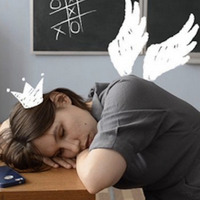- About
- News & Communications
- Programs & Events
- Get in Touch
Back to Top Nav
Back to Top Nav
Back to Top Nav
Back to Top Nav
A film and discussion with Yulia Vishnevets, journalist, documentary filmmaker and director of over 20 non-fiction films. She has worked as a reporter, translator and photographer.

Hey! Teachers!
A film and discussion with Yulia Vishnevets, journalist, dissident, documentary filmmaker, director, photographer.
Two young intellectuals, Katya and Vassya, come to a small industrial town to work as teachers. They want to change the system of scholastic education and the social situation in difficult regions. The school is a closed conservative world, where obedience and discipline are of the highest value. Young teachers discover that nationalism, sexism and homophobia are typical for their new environment. Children see the school as a prison and are completely indifferent to any new ideas. During one school year we observe attempts of our protagonists to bring new practices into the system. Young teachers try to speak with children about feminism, human rights and Russian politics, but the system pushes them out, and a comedy turns into a drama.
Yulia Vishnevets is a journalist, documentary filmmaker and director of over 20 non-fiction films. She has worked as a reporter, translator and photographer in various media. Between 2013-2014 she reported for Deutsche Welle in Germany. Since 2015 she has been staff current affairs documentary maker for the Radio Free Europe/Radio Liberty and the Current Time TV channel in Russia. Her documentary feature "Hey! Teachers!" received 2020 Best Documentary Feature National Award in Russia; special jury prize at Krakow film festival and Golden Apricot film festival in Yerevan; was the first runner-up at HKIDF in Hong Kong and part of the Best of Fests program in the IDFA festival. Her short films were recognised by professional nominations and awards in Russia and abroad.
In September 2022 she was detained while trying to film an anti-military demonstration in Russia, spent 5 days in prison in a North Caucasian village and had to leave the country being at risk of criminal prosecution. Now lives in Georgia.
Sponsored by the Russian Department and the Leslie Center for the Humanities
Events are free and open to the public unless otherwise noted.